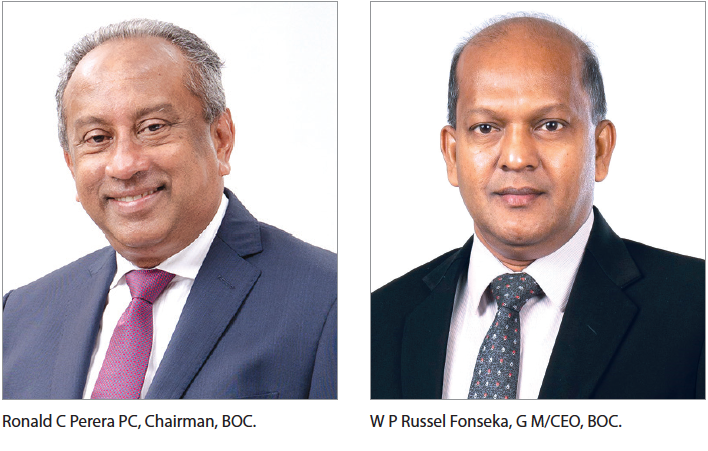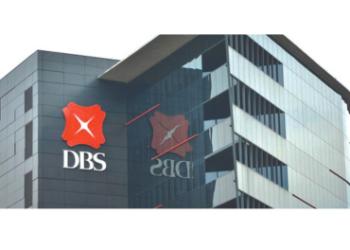
Bank of Ceylon (BOC) reported a Profit Before Tax of 40.3 billion rupees for the year ended December 31, 2023, demonstrating a strong and steady performance across various dimensions, including liquidity, capital, efficiency, profitability and asset quality, despite prevailing global and local economic uncertainties.
Ronald C Perera, Chairman and President’s Counsel, Bank of Ceylon, stated, “The Bank has successfully navigated all the headwinds came across during the past few years, and the immediate measures were taken strategically and ensured the Business Continuity and uninterrupted services to our valuable stakeholders. Managing the foreign currency shortage was challenging, particularly as being “Bankers to the Nation” we always act with a broader vision. We identified the criticality of an uninterrupted energy supply for the economy’s and social life’s survival. Against this backdrop, the Bank made all its efforts to facilitate foreign currency needs for importing energy and essential goods. Nevertheless, short-term strategies were carefully managed without compromising the Bank’s long-term strategic priorities, focusing on strengthening the financial position”.
The Bank achieved a profit before tax of 40.3 billion rupees, driven by a significant 15 per cent increase in interest income. However, despite this growth, a sharp rise in interest expenses resulted due to the lag effect in repricing the time deposits mobilized at higher rates. Accordingly, net interest income decreased by 28 per cent YoY. Moreover, net fee and commission income experienced a growth of eight per cent, primarily due to an increase in card transactions, improved remittance, and greater adoption of digital banking services in retail banking. The Bank experienced approximately a 49 per cent increase in worker remittances, accompanied by a rise in remittances. Total operating expenses increased by 10 per cent, mainly due to escalating other costs in line with higher inflation. However, operating profit before taxes on financial services stood at 53 billion rupees. The Profit Before Tax of 40.3 billion rupees was reported after charging the Value Added Tax (VAT) of 11.1 billion rupees and the Social Security Contribution Levy (SSCL) of 1.5 billion rupees. Additionally, the Bank incurred income tax expenses amounting to 13.7 billion rupees for the year, resulting in a Profit After Tax of 26.7 billion rupees.
Despite the challenges posed by the appreciation of the LKR and moving to the low-interest-rate scenario, the Bank’s deposit base expanded by 16 per cent to 3.9 trillion rupees, indicating strong customer confidence. During the year, the Bank’s total assets grew by two per cent and reached 4.4 trillion rupees.
Russel Fonseka, General Manager/CEO, reaffirmed, “It has already considered the changes required to the business model of the Bank by focusing post-crisis economic environment and changes in macro-economic fundamentals including new business activities and focus on private sector lending.”
Ronald C Perera, Chairman, BOC, stated, “A digitally sophisticated bank – Customer engagement will be conducted through digital channels, internal processes will be automated, and excellence in customer service will remain a key priority. Focused training will be provided to staff to enhance efficiency and productivity”.
Russel Fonseka, General Manager and CEO of the Bank, highlighted further, “The Agile banking model is essential in our rapidly evolving digital economy. Agility enables organizations to swiftly respond to customer demands and market shifts, especially within the realm of Digital Banking—agile transformation endeavors to accelerate the delivery of products and services. Overseas presence will also be a priority area, and the Bank will promote green/blue lending while introducing new products related to these aspects. Bank of Ceylon aims to generate not only financial and economic value but also long-term environmental and social value for a diverse array of stakeholders”.





